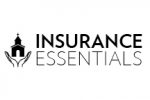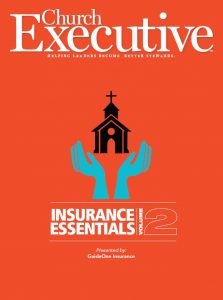
Assessing needs, determining accurate limits
If you filed a church insurance claim tomorrow, would your policy protect your church from loss and liability?
 If you’re not sure — or if the answer is “no” — it’s time to schedule a coverage review with your insurance agent or broker.
If you’re not sure — or if the answer is “no” — it’s time to schedule a coverage review with your insurance agent or broker.
“When churches find themselves paying for uncovered claims out of pocket, ministry suffers,” says David Lehmann, sales manager at Lutheran Trust / Church Asset Management, a subsidiary of GuideOne Insurance, in St. Charles, MO. “A church may have to make the difficult decision to not go on a certain mission trip or it may not be able to afford the additional youth pastor. That’s why it’s important to protect your ministry with proper insurance.”
During an insurance checkup, you and your agent will assess the church’s needs, determine if your current limits are accurate and make necessary adjustments so you’re not underinsured — nor overpaying for coverage you don’t need. You should also revisit the church’s replacement cost value (the cost of repairing or rebuilding the facility today) and content value for everything inside the church so you are protected in the event of a fire, storm or other disaster.
When to contact your agent
It’s a good idea to review your church’s policy annually, and you should also contact your agent in these instances:
#1: Your leadership changes. “If your church has new board members, it may be a good time to look at your insurance policy because philosophies with such things as deductibles may change,” Lehmann says.
#2: You move or renovate. Remodeling, adding space or building a brand-new facility can create coverage gaps because of the increase in property value. If a renovation or new construction is in your plans, contact your insurance agent or broker to secure proper coverage. Then, when the church improvement project is complete, visit with your agent to determine the updated structure’s replacement cost value. Be prepared to share square footage, the type of materials used, the building’s age, architectural features and other relevant facility details.
#3: You make a big purchase. The items inside your church matter, too. If you buy new audiovisual or other high-value equipment, make sure the values of these items are factored into your building and business personal property coverage and that your limits are adjusted accordingly. You might also want to secure an appraisal for particularly high-value items to make sure that you are appropriately covered.
#4: You have added new ministries. New programs — like international mission trips, a fall festival or a community outreach project — can increase liability exposure and may require additional coverages, such as business auto or travel protection. “While there is coverage built in for these things, special attention is needed occasionally,” Lehmann says.
#5: You are concerned about current events. It’s a good idea to stay updated on evolving risks, like cyber security and employment lawsuits, to determine if it makes financial sense to absorb them through deductibles or risk management.
Risk management and adding coverage
For instance, identity fraud and theft stemming from data breaches continues to be a growing concern to

churches of all sizes. So, you might consider supplementing your policy with cyber liability coverage, which covers expenses you would incur if a privacy breach occurred, like credit monitoring services and notification costs. And, since employment disputes are more common than in the past, consider an employment coverage add-on to protect against allegations of discrimination, sexual harassment and wrongful termination.
While you discuss your coverage questions and concerns with your church insurance specialist, also ask about the risk management resources offered by the insurance company — such as inspection checklists, fire-prevention pointers and background checks — so you can enhance your church’s safety ministry, too.
A proactive approach toward risk management, paired with smart coverage and a dedicated agent, goes a long way in protecting your church and bringing peace of mind.
Eric Spacek, JD, ARM is the Director of Risk Management and Loss Control at GuideOne Insurance in West Des Moines, IA. Before joining GuideOne, he served as Minister of Operations for a large Methodist church in Raleigh, NC, and was a liability litigation trial attorney in Washington, D.C.


